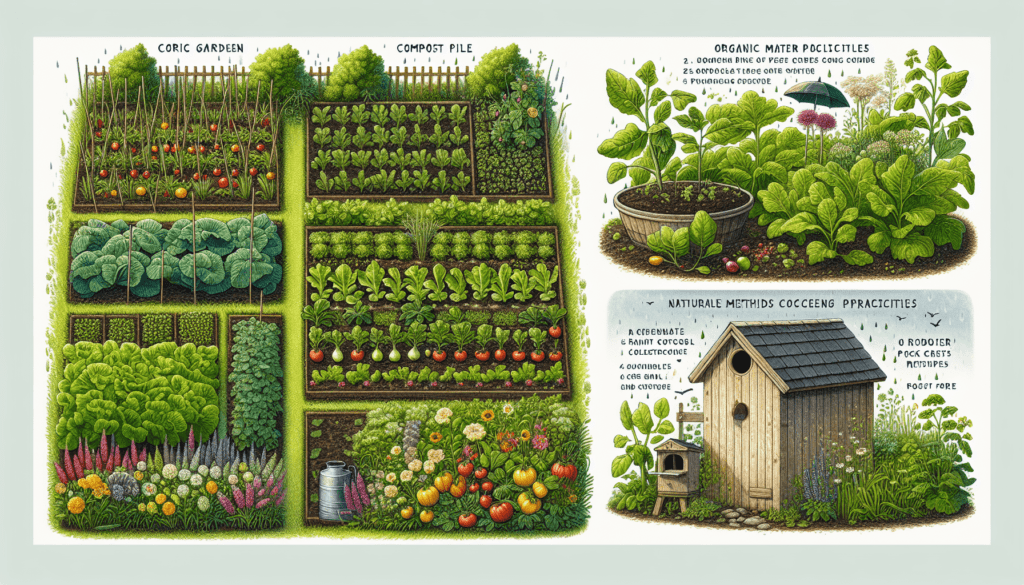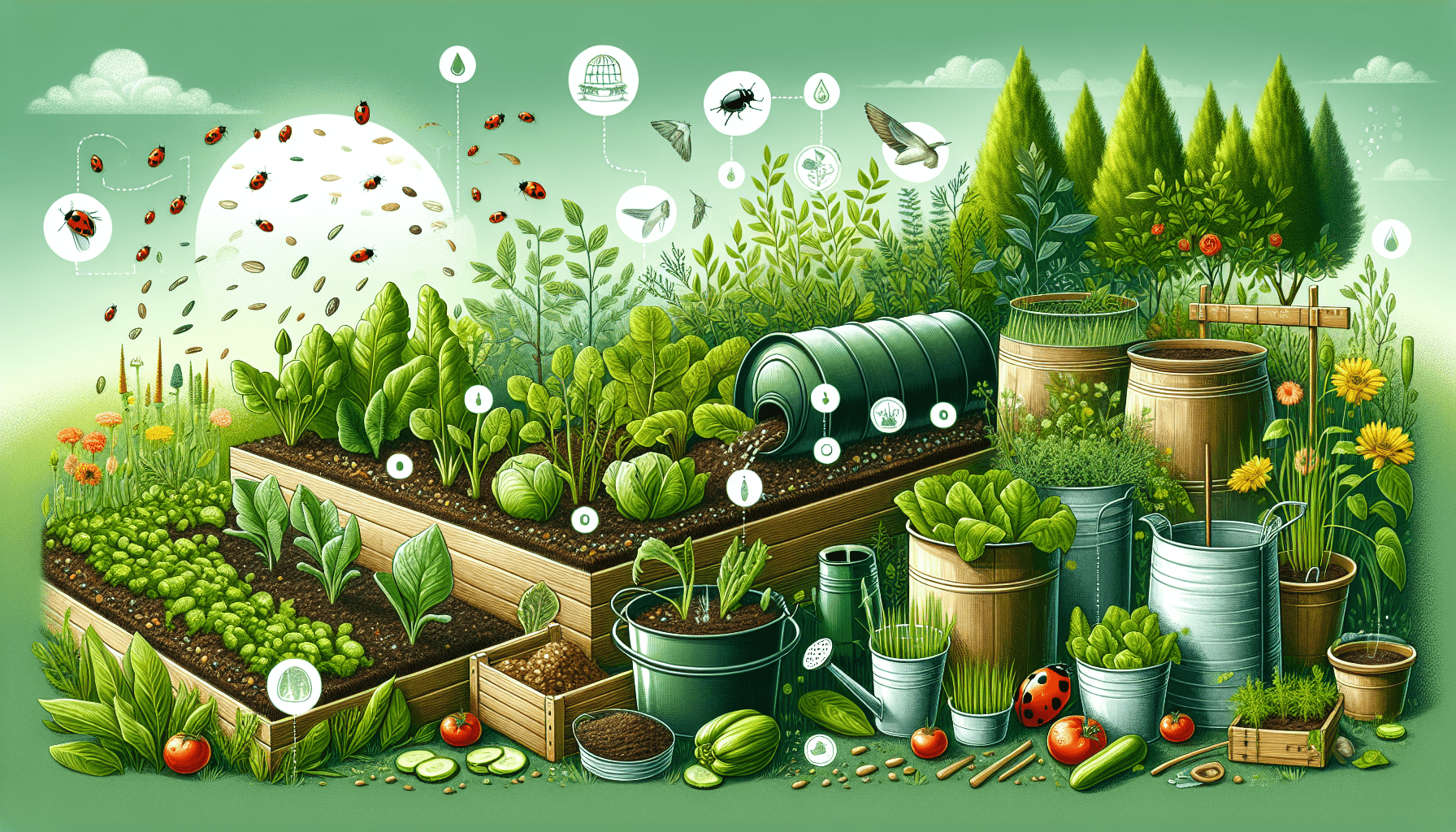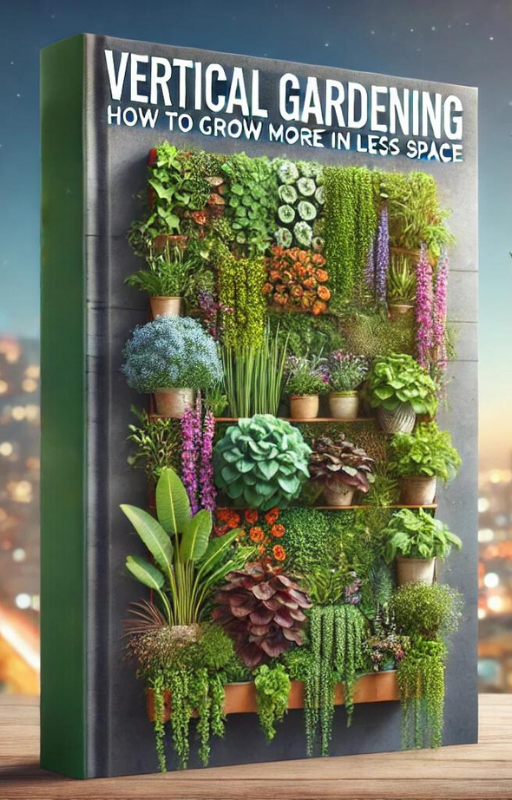The Basics of Organic Gardening” introduces you to the fantastic world of nurturing plants without synthetic chemicals, emphasizing natural methods and eco-friendly practices. You’ll learn the essentials of creating healthy soil, choosing the right plants, and managing pests naturally. This guide aims to support your journey towards a thriving organic garden, making the process enjoyable and accessible, regardless of your experience level. Whether you’re starting fresh or refining your green thumb, this short read will set you on the path to cultivating vibrant and robust flora. Have you ever wondered how you can grow your own fresh, delicious vegetables without the use of harmful chemicals? If so, organic gardening might be just what you’re looking for! Welcome to your ultimate guide on “The Basics of Organic Gardening.”
Organic gardening is all about creating a self-sustaining, healthy ecosystem in your own backyard. Instead of relying on chemical pesticides and fertilizers, you use natural methods to enrich the soil, protect plants, and ensure a bountiful harvest. Let’s dive into this fascinating world and explore the steps and tips you’ll need to embark on your organic gardening journey.
What is Organic Gardening?
Organic gardening is a method of growing plants—fruits, vegetables, herbs, and flowers—using natural processes and materials. The goal is to work in harmony with nature rather than fighting against it. This means you avoid synthetic chemicals and genetically modified organisms (GMOs), relying instead on organic fertilizers, compost, and natural pest control.
Benefits of Organic Gardening
The advantages of organic gardening are numerous, not just for your health but also for the environment. Here are a few key benefits:
- Healthier Food: Organic produce is free of synthetic pesticides and fertilizers, making it healthier for consumption.
- Environmental Impact: By avoiding chemicals, you reduce pollution and help maintain soil and water quality.
- Soil Fertility: Organic gardening methods improve soil structure and fertility over time.
- Biodiversity: Encouraging a variety of plants and wildlife creates a balanced ecosystem.
Getting Started with Organic Gardening
So, how do you start your own organic garden? Here are the essential steps to get you going.
Choosing the Right Location
Your garden’s success depends heavily on its location. Ideally, you’ll want a spot that gets at least six hours of sunlight each day and has good drainage. If space is an issue, consider container gardening or raised beds.
Soil Preparation
Healthy soil is the foundation of organic gardening. Before planting, test your soil to determine its pH and nutrient levels. Based on the results, you can amend the soil with organic matter such as compost or well-rotted manure.
Planning Your Garden Layout
A well-planned layout will maximize space and sunlight exposure. Consider companion planting, where certain plants support each other’s growth and deter pests. Make a rough sketch of your garden and decide which plants will go where.
Selecting Seeds and Plants
Choose seeds and plants that are suited to your climate and are known to be resistant to local pests and diseases. Look for organic seeds and seedlings to start your garden off right.

Organic Soil Management
Enriching and maintaining healthy soil is critical for a productive organic garden.
Composting
Composting is an excellent way to recycle kitchen scraps and yard waste into nutrient-rich soil. You can compost fruit and vegetable peelings, coffee grounds, eggshells, and more. Avoid meat, dairy, and oily foods, which don’t decompose well.
Mulching
Mulch helps retain moisture, suppress weeds, and regulate soil temperature. Organic mulches like straw, leaves, or wood chips are beneficial as they break down and add nutrients to the soil.
Crop Rotation
Rotating crops each season prevents soil depletion and reduces pest and disease problems. Different plants draw different nutrients from the soil, so rotating helps keep soil balanced.
Natural Pest and Disease Control
Chemical pesticides are a no-go in organic gardening. Instead, use these natural methods to keep your plants healthy.
Beneficial Insects
Encourage beneficial insects like ladybugs and predatory beetles, which prey on harmful pests. Planting flowers like marigolds and dill can attract these helpful creatures to your garden.
Homemade Sprays
You can make your own natural sprays to deter pests. For example, a mixture of water and a few drops of dish soap can keep aphids at bay. Garlic and chili pepper sprays are also effective against various insects.
Physical Barriers
Protect plants physically by using row covers, nets, or screens. These can be particularly useful for keeping larger pests like birds and rabbits away from your crops.

Watering Techniques
Efficient watering is crucial for any garden, but especially for an organic one where water conservation is key.
Drip Irrigation
Drip irrigation systems deliver water directly to the plant roots, reducing evaporation and water waste. They’re particularly useful for garden beds and larger plots.
Rainwater Harvesting
Collecting rainwater in barrels is an eco-friendly way to water your garden. It reduces your dependence on municipal water supplies and provides naturally soft water that’s great for plants.
Harvesting and Maintenance
Once your garden is up and running, regular maintenance will keep it thriving.
Weeding
Weeds compete with your plants for nutrients and water. Regular weeding is essential, but aim to disturb the soil as little as possible to avoid bringing new weed seeds to the surface.
Fertilizing
Even with the best soil, your plants may need additional nutrients. Use natural fertilizers like compost tea, fish emulsion, or seaweed extract to give your plants a boost.
Harvesting
Harvest your crops when they are ripe and at their peak flavor. Frequent harvesting can also encourage plants to produce more.
Seasonal Clean-up
At the end of each growing season, clear out dead plants and debris to prevent the buildup of pests and diseases. Compost any plant material you remove to enrich the soil for the next season.
Troubleshooting Common Problems
Every gardener faces challenges. Here’s how to address some of the most common issues without turning to chemicals.
Nutrient Deficiencies
Plants with yellowing leaves or stunted growth may be suffering from nutrient deficiencies. Consider adding compost or organic fertilizers to address these issues.
Pests
If pests become a problem, try introducing natural predators or using homemade sprays. Regular inspection and early intervention can keep infestations under control.
Diseases
Prevent plant diseases by ensuring good air circulation and avoiding overhead watering. Remove any diseased plants immediately to prevent spreading.
Weather Challenges
Weather can be unpredictable. Using row covers, mulch, and proper watering techniques can help your plants survive adverse conditions.
Organic Gardening for Different Spaces
No matter where you live, you can find a way to garden organically.
Balconies and Small Spaces
Container gardening is perfect for small spaces. Choose pots with good drainage and use high-quality organic potting mix. Herbs, salad greens, and small vegetable plants can thrive on a balcony.
Raised Beds
Raised beds offer excellent drainage and can be filled with rich organic soil. They’re ideal for urban backyards or areas with poor soil quality.
Community Gardens
If you lack space at home, consider joining a community garden. These shared spaces often provide plots and resources for growing your own organic produce.
Indoor Gardening
You can even garden indoors! Herbs, microgreens, and some vegetables can be grown inside with adequate light. LED grow lights can supplement natural light if needed.
Sustainable Practices in Organic Gardening
Organic gardening isn’t just about growing food; it’s also about being a good steward of the environment. Here are some sustainable practices to incorporate into your gardening routine.
Composting
Composting reduces waste and enriches your soil. Maintain a compost pile or bin and add kitchen scraps, yard waste, and other organic materials.
Water Conservation
Use mulches to retain moisture, invest in efficient watering systems, and collect rainwater. Watering early in the morning reduces evaporation and conserves water.
Reducing Waste
Recycle plant pots, reuse containers, and opt for biodegradable materials whenever possible. Aim to reduce plastic use in your garden.
Supporting Pollinators
Plant native flowers and provide habitats for bees, butterflies, and other pollinators. They play a crucial role in the ecosystem and help your garden thrive.
Conclusion
Organic gardening is a rewarding, sustainable way to grow your own food and connect with nature. By following these basic principles, you can create a healthy, productive garden that benefits you and the environment. So, grab your gardening tools and start your organic gardening journey today. You’ll be amazed at the fruits—literally and figuratively—of your labor!
Happy gardening!


